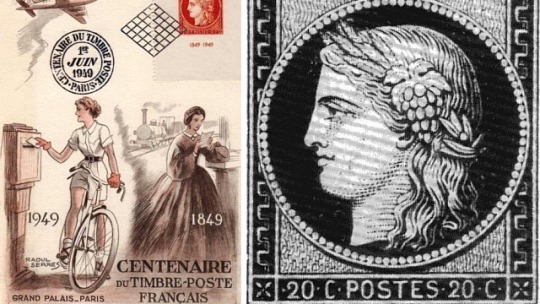#postale
Explore tagged Tumblr posts
Video
Jarmila Novotna by Truus, Bob & Jan too! Via Flickr: German postcard by Ross Verlag, no. 6837/1, 1931-1932. Photo: Walter Firner, Berlin. Czech soprano Jarmila Novotná (1907-1994) was one of the world-renowned opera luminaries of the 20th Century. Her film appearances were unfortunately few and far between. Jarmila Novotná was born in in Prague, Czech Republic in 1907. She studied singing with Emmy Destinn. In 1925, the 17-years-old Novotná made her operatic debut at the Prague Opera House as Marenka in Bedřich Smetana's Prodaná nevěsta (The Bartered Bride). Six days later, the lyric soprano sang there as Violetta in Giuseppe Verdi's La traviata. The following year, she made her film debut in the silent film Vyznavaci slunce/The Sun Disciples (Václav Binovec, 1926), starring Luigi Serventi. In 1928 she starred in Verona as Gilda opposite Giacomo Lauri-Volpi in Verdi's Rigoletto and at the Teatro San Carlo in Naples as Adina opposite Tito Schipa in Gaetano Donizetti's L'elisir d'amore. In 1929 she joined the Kroll Opera in Berlin, where she sang Violetta as well as the title roles of Giacomo Puccini's Manon Lescaut and Madama Butterfly. When talking pictures arrived, she headlined in German films like Brand in Der Oper/Fire in the Opera House (Carl Froelich, 1930), with Gustaf Gründgens, Der Bettelstudent/The Beggar Student (Victor Janson, 1931), and the film version of The Bartered Bride, Die Verkaufte Braut (Max Ophüls, 1932). Hal Erickson at AllMovie on Die Verkaufte Braut (1930): “The original libretto, involving the comic misadventures of two mismatched couples, is given a respectable amount of attention, but the film's biggest selling card is the photographic dexterity of Max Ophuls, who never met a camera crane he didn't like. Since filmed opera was seldom big box-office in 1932, Ophuls concentrates on the farcical elements of the story; especially worth noting are comic contributions by Paul Kemp and Otto Wernicke, who seldom let their German film fans down. Curiously, star Jarmila Novotna, whose ‘live’ appearances in The Bartered Bride were much prized by contemporary critics, doesn't come off all that well in this film version.” Other films followed such as Nacht Der Grossen Liebe/Night of the Great Love (Geza von Bolvary, 1933) with Gustav Fröhlich. In January 1933 she created the female lead in Jaromir Weinberger's new operetta Frühlingsstürme (Spring Storms), opposite Richard Tauber at the Theater im Admiralspalast, Berlin. This was the last new operetta produced in the Weimar Republic, and she and Tauber were both soon forced to leave Germany by the new Nazi regime. Jarmila Novotnà returned to Czechoslovakia to star in the film Skrivanci pisen/Lark's Songs (Svatopluk Innemann, 1933). In 1934, she left for Vienna, where she created the title role in Franz Lehár's operetta Giuditta opposite Richard Tauber. Her immense success in that role led to a contract with the Vienna State Opera, where she was named Kammersängerin. She also appeared there with Tauber in The Bartered Bride and Madama Butterfly. In the cinema, she starred in the Austrian operetta film Frasquita (Karel Lamac, 1934) with Heinz Ruhmann, the Austrian romantic thriller Der Kosak und die Nachtigall/The Cossack and the Nightingale (Phil Jutzi, 1935) with Iván Petrovich, and in the French-British operetta film La dernière valse/The Last Waltz (Leo Mittler, 1935), which was made in two language versions. She then left the film industry to concentrate on her stage work with the Viennese State Opera. After the Anschluss of Austria, she had to leave Vienna. In January 1940 she made her debut with the Metropolitan Opera in New York, as Mimí in Puccini's La bohème. From 1940 to 1956, Novotná performed regularly at the Met. In 1946 she returned before the cameras in a straight dramatic role in the Hollywood production The Search (Fred Zinnemann, 1946), starring Montgomery Clift. The Search is a semi-documentary film on the plight of WWII orphans. Novotná played a Czech mother who has lost contact with her young son when they were in Auschwitz and she now travels from one refugee camp to another in search of him. Novotna's then played turn of the century diva Maria Selka in the biopic The Great Caruso (Richard Thorpe, 1951), featuring Mario Lanza. The film traces legendary tenor Enrico Caruso's ascension from adolescent choir singer in Naples to the uppermost ranks of the opera world. Mario Lanza's tenor voice made this film one of the top box-office draws of 1951, and this helped to popularize opera among the general public. On TV she appeared in The Great Waltz (Max Liebman, 1955), which charts the life and times of composer Johann Strauss, Jr. She also played Hans’ mother in the TV musical Hans Brinker, or the Silver Skates (Sidney Lumet, 1958), starring Tab Hunter. Her last screen appearance was as an interviewee in the documentary Toscanini: The Maestro (Peter Rosen, 1985). At 85, Jarmila Novotná passed away in 1994 in New York. Sources: Hal Erickson (AllMovie), Wikipedia, and IMDb.
#Jarmila Novotna#Jarmila#Novotna#Actress#Actrice#European#Film Star#Cinema#Cine#Kino#Film#Picture#Screen#Movie#Movies#Filmster#Star#Vintage#Postcard#Carte#Postale#Cartolina#Tarjet#Postal#Postkarte#Postkaart#Briefkarte#Briefkaart#Ansichtskarte#Ansichtkaart
7 notes
·
View notes
Photo

ÉVÉNEMENT | Réforme postale en 1849 et ancêtre du timbre-poste en 1653 ➽ https://bit.ly/Reforme-Postale Si une tentative de mise en œuvre de la lettre à port payé eut lieu en France en 1653, elle resta cependant sans lendemain, et il faut attendre l’avènement de la Réforme postale en 1849, dans le sillage de celle menée en Angleterre, pour que l’acheminement de correspondances dont le prix est auparavant réglé à l’arrivée et dépend de la distance parcourue, devienne uniforme et acquitté sous forme de timbres-poste lors de l’expédition du pli
4 notes
·
View notes
Text

phenomenon
#milosartstuff#comic#meme#fandom#edit: this was supposed to be about how the fans treat eachother not what the fanworks are like#and if you were curious im mostly talking about the postal fandom for the latter
41K notes
·
View notes
Photo

PRIMA PAGINA La Sicilia di Oggi martedì, 22 aprile 2025
#PrimaPagina#lasicilia quotidiano#giornale#primepagine#frontpage#nazionali#internazionali#news#inedicola#oggi borgo#assegnato#catania#razzia#dentro#cabina#villa#bonifica#postale#oggi#resta#chiuso#taormina#boom#ponte#pasquale#sicilia#papa#ictus#sabato#funerale
0 notes
Text
A Ittiri attivo il nuovo ufficio postale “polis” con il servizio passaporti
Sassari. Sede rinnovata e nuovi servizi per la clientela, grazie al Progetto “Polis”. Dopo i lavori di ristrutturazione, infatti, ha riaperto oggi al pubblico l’ufficio postale di via Funtanedda a Ittiri presso il quale è già possibile effettuare a sportello la richiesta per ottenere il passaporto senza la necessità di recarsi presso la Questura competente nemmeno per il ritiro. Come in altri 91…
0 notes
Text
What kind of man would put a known criminal in charge of a major branch of government? Apart from, say, the average voter.
--Terry Pratchett, Going Postal
17K notes
·
View notes
Text



more pixel art stamp concepts (:
#pixel art#illustration#art#aesthetic#artists on tumblr#pixelart#landscape#sunset#stamp#stamps#stamp collection#postal stamp#concept#concept art
14K notes
·
View notes
Text






























misc game stamps graphics
#carrd#carrd resources#carrd stuff#neocities resources#webcore#neocities#website#stamps#neocities stamps#2000s#rentry decor#rentry graphics#rentry#rentry resources#carrd graphics#web graphics#portal#undertale#parappa the rapper#minecraft#ace attorney#resident evil#postal redux#cry of fear#yume nikki#deltarune#fnaf#guitar hero#tf2#splatoon
23K notes
·
View notes
Text

Do you understand what I'm saying?" shouted Moist. "You can't just go around killing people!"
"Why Not? You Do." The golem lowered his arm.
"What?" snapped Moist. "I do not! Who told you that?"
"I Worked It Out. You Have Killed Two Point Three Three Eight People," said the golem calmly.
"I have never laid a finger on anyone in my life, Mr Pump. I may be–– all the things you know I am, but I am not a killer! I have never so much as drawn a sword!"
"No, You Have Not. But You Have Stolen, Embezzled, Defrauded And Swindled Without Discrimination, Mr Lipvig. You Have Ruined Businesses And Destroyed Jobs. When Banks Fail, It Is Seldom Bankers Who Starve. Your Actions Have Taken Money From Those Who Had Little Enough To Begin With. In A Myriad Small Ways You Have Hastened The Deaths Of Many. You Do Not Know Them. You Did Not See Them Bleed. But You Snatched Bread From Their Mouths And Tore Clothes From Their Backs. For Sport, Mr Lipvig. For Sport. For The Joy Of The Game.
#going postal#moist von lipwig#mr pump#discworld#terry pratchett#us politics#elongated muskrat#usaid#there seems to be a pratchett quote for everything
7K notes
·
View notes
Text

I have nothing to add. Pure evil.
#us postal service#justice department#george floyd#center for disease control#trump administration#donald trump#us politics#fuck maga#maga morons
6K notes
·
View notes
Text

Everytime Etho appeared in Pearl's trial chamber episode, he was COVERED in arrows
#hermitcraft#ethoslab#etho fanart#pearlescentmoon#pearlecentmoon fanart#tangotek#tangotek fanart#hermitblr#hermitcraft fanart#pet postal#liekadae
9K notes
·
View notes
Video
Dorothy Gish by Truus, Bob & Jan too! Via Flickr: Vintage Swedish postcard. Nordisk Konst, No. 853. Triangle Film, '1919'. American actress Dorothy Gish (1898-1968) was the sister of silent film star Lilian Gish. D.W. Griffith discovered the two girls in 1912 and they starred in his epics Hearts of the World (1918) and Orphans of the Storm (1921).
#Dorothy Gish#1919#Triangle#Nordisk Konst#AMerican#Hollywood#USA#1910s#Swedish#Sweden#Sepia#Vintage#Vedette#Postcard#Postkarte#POstale#Postkaart#Portrait#Cinema#Carte#Cine#Cartolina#cARD#Carte Postale#Celebrity#Costume#Film#Film Star#Movies#Movie Star
6 notes
·
View notes
Text


#tiktok#donald trump#fuck trump#us politics#trump#president trump#trump administration#us government#trump is the enemy of the people#fuck doge#doge assholes#doge#department of government efficiency#fuck elon musk#fuck elongated muskrat#fuck elon and trump#elon musk#elongated muskrat#fuck elon#fuck donald trump#usps#united states postal service#postal service#snail mail
3K notes
·
View notes
Text

I can't believe we have been living in this world without Sir Terry for 10 years already 💔
“Do you not know that a man is not dead while his name is still spoken?”
― Terry Pratchett, Going Postal
GNU Terry Pratchett
#terrypratchett#gnu terry pratchett#discworld#ankh morpork#the colour of magic#mort#discworld death#good omens#hogfather#going postal#moving pictures#night watch#traditional illustration#book illustration#my fanart
3K notes
·
View notes
Photo

PRIMA PAGINA La Stampa di Oggi lunedì, 14 aprile 2025
#PrimaPagina#lastampa quotidiano#giornale#primepagine#frontpage#nazionali#internazionali#news#inedicola#oggi tennis#bello#oggi#sinner#stefano#formulai#bahrein#podio#jacopo#svuotato#como#porta#casa#quotidiano#fondato#anno#italia#ester#postale#comma#intervista
0 notes
